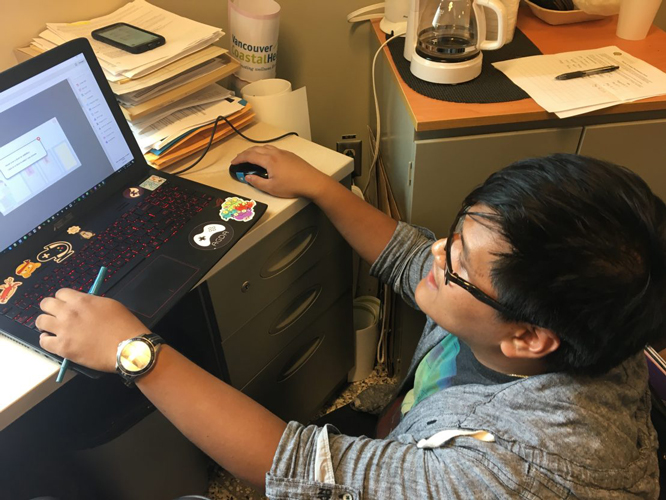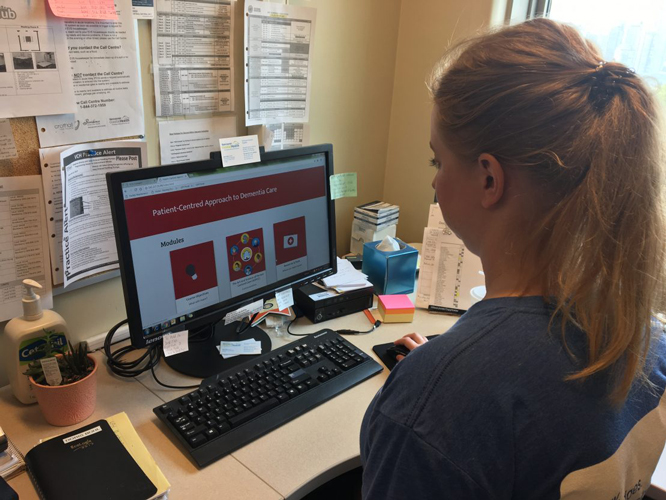A Student Internship In Action
An interdisciplinary team at Vancouver Coastal Health hired an intern from our 2017 summer student internship program to assist with a very unique project: designing an online education program for VCH employees who work with patients with dementia. The call for a fun, engaging online course was sparked by the tremendous interest and feedback received to an education event developed for Vancouver General Hospital interdisciplinary staff, entitled Double F Fun Fair.
Lillian Hung, a Clinical Nurse Specialist, supervised George Padua, a student in the Game Development program at the British Columbia Institute of Technology. George’s education in game design, including designing and releasing his own games, made him an ideal candidate; his interest in the project was sparked by his own experience working in a long-term care home dining room.
George’s game was designed based on recent research work by Lillian and the team at VGH, called “The ART & SCIENCE of Person-Centred Care.” ART & SCIENCE are acronyms that capture 10 evidence-based principles in caring for individuals with dementia, with a focus on effective communication skills and best practices.

A – Acknowledge Emotion
R – Relax the pace, slow it down
T – Take note of key life history & habits
S – Stop & try again
C – Calming down
I – Inquire meanings behind behaviours
E – Easy prompts
N – Non-verbal, bodily expression
C – Collaborate, work “with”
E – Embrace the moment, make the interaction fun
The acronyms are printed on double-sided lanyard cards for easy reference.

To play the game, participants first create their avatar. Then they proceed through three levels, practicing the “ART”, the “SCIENCE” approaches, and final addressing a scenario with a patient. In the first level, players are presented with mini-patient scenarios and choose between acknowledging emotion, relaxing the pace, or taking note of history and habits in order to provide the patient with what he or she needs. In the second level, different patient scenarios require players to choose which part of “SCIENCE” is the appropriate strategy for patient communication. And in the final level, a more complex clinical scenario requires the player to proceed step-by-step through a care encounter.
Each level is timed, and players receive points for choosing the appropriate responses. At the end, their high score is tallied against the “top scores,” to provide an element of healthy competition. Through playing, players can explore the different challenges that crop up when caring for a patient with dementia, and reinforce their knowledge of how to respond, de-escalate, and build trust.
George built a beta version of the game, which was tested through PDSA cycles with over 70 interdisciplinary staff (e.g., physician, nursing staff, OT, PT, unit clerk, etc) in the medicine and mental health programs of Vancouver General Hospital. Staff in different units provided their feedback and ideas for improving the design and function of the game. For example, the staff feedback and opinions were incorporated into the second version of the game, with refined graphics and improved navigation for players. Then, again staff were invited to play the second version and comment on whether there were further improvements that could be made, which were incorporated into the final version of the game.
By combining effective gamification strategies and principles with best practices for dementia care, Lillian’s team hopes that more staff will be motivated to develop their knowledge and skills in working with patients who have dementia.
Lillian, George, and their team presented a poster on the game at Quality Forum 2018, and have made it available through the Learning Hub so that all health authority staff can access it.

